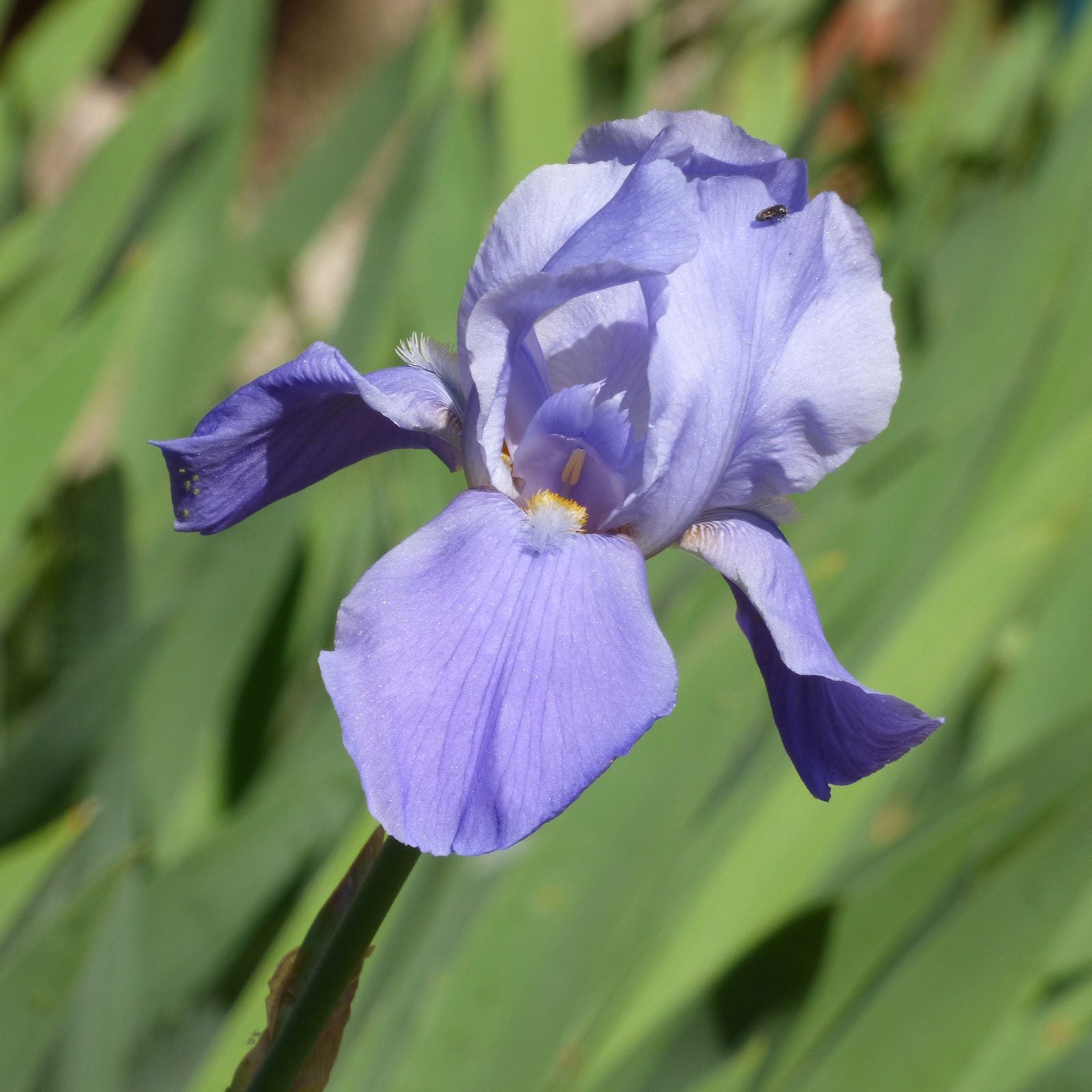Color Changing In Irises: Why An Iris Plant Changes Color


Irises are old-fashioned garden plants with hardiness and persistence. They can delight for decades if divided and managed properly. There are many colors and several sports and cultivars of each species, allowing for a palette of tones. If an iris plant changes color, it could be a combination of things or simply a random accident. Here are some things to investigate that mysterious hue change.
Why Iris Flower Loses Color
Occasionally, we hear that an iris has changed color. There are several possible reasons why an iris flower loses color, but it generally doesn’t change color entirely. Temperature changes, chemical drift, transplant issues, or even random rhizomes dug up by a dog can cause a stand of iris to change color. Irises do not always bloom every year and an older variety may be asserting itself in your cultivar’s fallow period too. Several other explanations exist to account for color changing on iris. Loss of color, or fading, is common when the plant experiences extreme heat or cold. Additionally, the color can be influenced by lack of or excess light – for instance, when a tree has grown over to shade the bed. There is little evidence that soil pH or type will cause irises to fade. A deep, purple iris turns color when it matures and begins to die. Most of these options for an iris flower changing color change over time and the plant will resume its usual flower tones. Unexplained instances of an entire bed that was purple and turned white the following year will need to be delved into further.
Permanent Color Changing in Iris
When you find the entire iris plant changes color, the explanation is more complex. Irises grow from rhizomes that are just beneath the surface of the soil. In fact, old stands will have rhizomes growing right on top of the soil. These are easily broken away and can establish in any part of the garden they end up in. This happens when children play, during division or transplant, or even when the dog is digging in the yard. If a piece of rhizome ends up in another variety of iris, it can establish, taking over the bed and causing the iris flower to change color. More notable still, would be the presence of a sport. This is when the plant produces an offset that is not true to the parent. In these cases, the sport may bloom an entirely different shade.
Transplanting and Why Iris Turns Color
Another thing to think about is the strange issue of transplanting. You or someone else may have planted iris in the landscape years ago. Perhaps it didn’t bloom anymore because it needed division, or the site was not conducive to flowering. If any of the rhizomes are still alive and you transplant them into the location after amending the soil, the conditions are now optimum. Even a piece of the old rhizome can rise from the ashes and reestablish itself. If the older iris is a stronger cultivar, it may take over the new iris patch, making it appear the new iris plant changes color. The same thing can happen if you transplant your purple iris from a bed but inadvertently move others of a different color. Lo and behold, the next year you may have several different colors in the bed. The ease with which irises establish themselves makes them valuable, consistent performers. This same thing can cause some anxiety when they seem to come up with a different hue.
Gardening tips, videos, info and more delivered right to your inbox!
Sign up for the Gardening Know How newsletter today and receive a free copy of our e-book "How to Grow Delicious Tomatoes".

Bonnie Grant is a professional landscaper with a Certification in Urban Gardening. She has been gardening and writing for 15 years. A former professional chef, she has a passion for edible landscaping.
-
 4 Superfast Composting Methods: Turn Waste Into Garden Gold In 30 Days Or Less
4 Superfast Composting Methods: Turn Waste Into Garden Gold In 30 Days Or LessTry the fastest composting methods to turbocharge your pile and transform kitchen scraps and garden waste into finished compost in just a few weeks.
By Mary Ellen Ellis
-
 Best Spider Plant Soil – Complete Soil Guide And Expert Tips For Keeping Plants Happy
Best Spider Plant Soil – Complete Soil Guide And Expert Tips For Keeping Plants HappySpider plants are fun and easy plants to grow, but what is the best soil for a spider plant? Selecting the right soil is important so they can thrive.
By Bonnie L. Grant